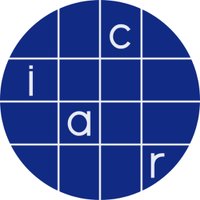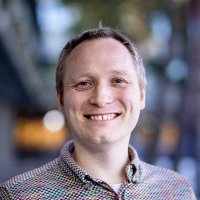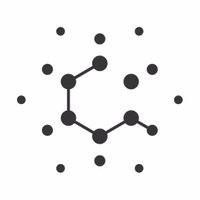
Geoffroy Couteau
@couteaugeoffroy
Researcher in cryptography and complexity at CNRS, IRIF, Université Paris Cité.
ID: 1321799932068679680
http://geoffroycouteau.fr/ 29-10-2020 13:04:07
154 Tweet
412 Takipçi
131 Takip Edilen


TCC 2022 Call for Papers is up, please submit your best work in crypto theory! tcc.iacr.org/2022/callforpa… Vinod Vaikuntanathan






Answer to poll: Yes (since QM exists in this world)! Yassine Hamoudi proved this in his terrific PhD thesis: yassine-hamoudi.github.io/files/other/Ph… Given code (classical or quantum) to sample Y, and time for O(n) samples, his quantum algorithm whp estimates E[Y] to ±σ/n', where n'=n/polylog(n)


We spent some time to make a comprehensive list of use of MPC (and some other PETs) in classical finance and Defi. With James Chiang, Bernardo and Tore.

🔐Peut-on contrôler l'accès aux sites #pornographiques tout en conservant l'#anonymat des utilisateurs ainsi que leurs #données ? Geoffroy Couteau et Pierre-Évariste Dagand réfléchissent à créer une identité numérique en passant par le "zero-knowledge proof".



![ICALP 2023 (@icalpconf) on Twitter photo [Call for participation] #ICALP2022
Early registration is open until May 11th, 2022.
Late registration starts from May 12th, 2022.
ℹ For more details and to register, follow this link: 🔗icalp2022.dakini-pco.com [Call for participation] #ICALP2022
Early registration is open until May 11th, 2022.
Late registration starts from May 12th, 2022.
ℹ For more details and to register, follow this link: 🔗icalp2022.dakini-pco.com](https://pbs.twimg.com/media/FRRMwU-XIAAzl0x.png)

![Quanta Magazine (@quantamagazine) on Twitter photo Wei-Kai Lin, Ethan Mook and Daniel Wichs devised a new method for privately searching large databases. “[This is] something in cryptography that I guess we all wanted but didn’t quite believe that it exists,” said Vinod Vaikuntanathan, a researcher at MIT. quantamagazine.org/cryptographers… Wei-Kai Lin, Ethan Mook and Daniel Wichs devised a new method for privately searching large databases. “[This is] something in cryptography that I guess we all wanted but didn’t quite believe that it exists,” said Vinod Vaikuntanathan, a researcher at MIT. quantamagazine.org/cryptographers…](https://pbs.twimg.com/media/F-bedW5WsAAevBf.jpg)